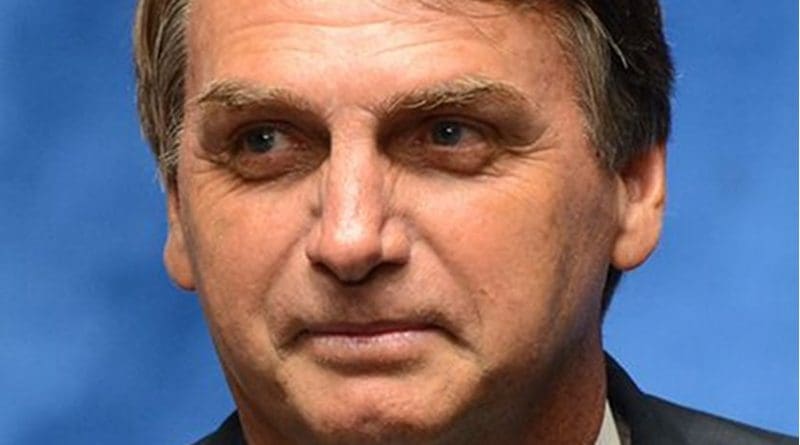Brazil: Federal Judge Moro Agrees With Bolsonaro On Criminal Age, Gun Possession
By ABr
By Pedro Rafael Vilela
In a Tuesday (Nov. 6) interview, Federal Judge Sergio Moro agreed with the opinions expressed by President-Elect Jair Bolsonaro on making gun possession rules flexible and reducing the age of criminal responsibility.
It was the first time Moro granted an interview since Bolsonaro invited him to become justice minister under his administration. The trial judge was asked a number of controversial questions on topics raised by Bolsonaro during his campaign, like loosening up the Disarmament Statute approved in 2003 limiting gun sales and possession in the country.
According to Moro, Bolsonaro’s win in the presidential race was made possible by a caucus that favors gun possession in the household and it would be inconsistent if the president-elect did not work to push it forward. “The issue to be discussed is the way this is to be conducted. I showed concern, arguing that too much flexibility could lead to criminal organizations having more access to guns.”
As for carrying a gun on the streets and in vehicles, Moro noted that the president-elect himself said this should be governed by even stricter rules than possession.
When asked about lowering the age of criminal responsibility—a subject vehemently underscored by Bolsonaro—the future minister of justice mentioned the scope of the measure, but said he agrees with the proposal currently being considered in Congress, which includes the reduction of the criminal age to 16 in cases of serious crimes resulting in death or severe injuries, and rape.
“People under the age of 18 must be protected, as they often lack a full comprehension of the consequences of their acts, but a teenager older than 16 is in condition to understand, for instance, that they must not kill. So treating this crime differently seems reasonable enough to me,” he argued.
Social Movements
In one of the few moments he expressed disagreement with his future leader, Sergio Moro criticized the possible move to qualify social movements as terrorist organizations. The measure, widely endorsed by Bolsonaro during his campaign and even after his victory, aims to classify damage to public and private property during demonstrations as terrorism.
In Moro’s view, no social movement is above punishment. They have to account for possible losses done to third parties, he sustained, but rating social movements as terrorist organizations is not consistent. “There is a law, an order, that must be observed even by members of these movements, but at no point is there the intention of criminalizing, so to speak, social demonstrations or anything of this sort.”
Minorities
Sergio Moro said that minorities cannot be discriminated against. “Everyone has the right to public security. Hate crimes must not be tolerated,” he stated. Moro went on to point out that, if necessary, he would turn to the Federal Police to fight this sort of crime.
“There is no policy to persecute homosexuals and other minorities. Nothing of this kind has been brought to the table or under scrutiny, no discrimination policy has been envisioned. Minorities will be allowed to have their rights enforced freely. All I see is unfounded fear,” he declared.

